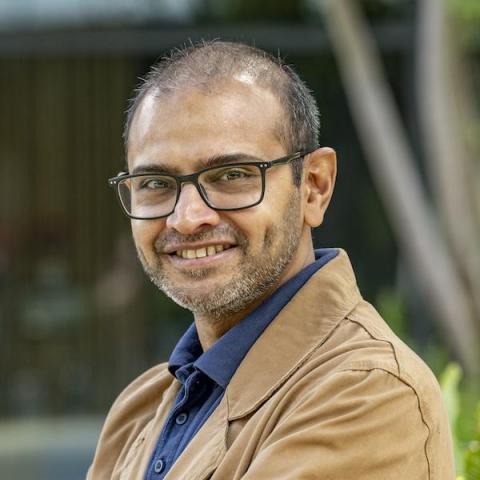About the project
Explore the effects of pressure gradient histories on turbulent boundary layer flow at high Reynolds numbers. We have developed a new optical diagnostic that enables us to capture 3D data over large volumes. The goal is to deploy this technique in wind tunnel experiments and capture the 3D flow information over the entire length of pressure-gradient history.
Turbulent boundary layers subjected to pressure gradients are found in a wide range of engineering applications and environmental flows. The pressure gradient imposed on the boundary layer can be by design (such as wings or turbine blades) or due to operating conditions (e.g. urban flows or fuselage flow distorted by installation effects).
The interaction between the imposed pressure gradient history and turbulent boundary layer significantly alters the flow structure, which impacts the mean and fluctuations of velocity, pressure and skin friction. This, in turn, affects overall performance, load distributions, vibrations and noise.
With the increasing need to improve our predictive capabilities for digital design motivated by our obligation to achieve Net Zero, it is critical that we model the non-linear effects of pressure gradient histories on flow performance.
We're combining our optical diagnostic with other techniques such as hot-wire anemometry as well as wall-pressure measurements. This high-fidelity data is expected to be analysed to better understand the flow mechanisms and develop new data-driven predictive models to capture the influence of pressure gradient histories on turbulent boundary layers.
We aim to build a diverse and inclusive team to tackle challenging problems where we develop new skills and expertise in our team members. Therefore, the project will be open-ended, and the details will be tailored to suit you.
You'll have a unique opportunity to:
- work alongside other team members (PhD students and postdoctoral researchers) with different backgrounds and experience
- be trained in using modern diagnostics and advanced data-analysis methods that will enable you to pursue a career in academia or industry
- travel to international conferences to present your work and develop new collaborations with research groups around the world
Further information on the type of projects carried out in our lab as well as information on current lab members can be found on our website.

